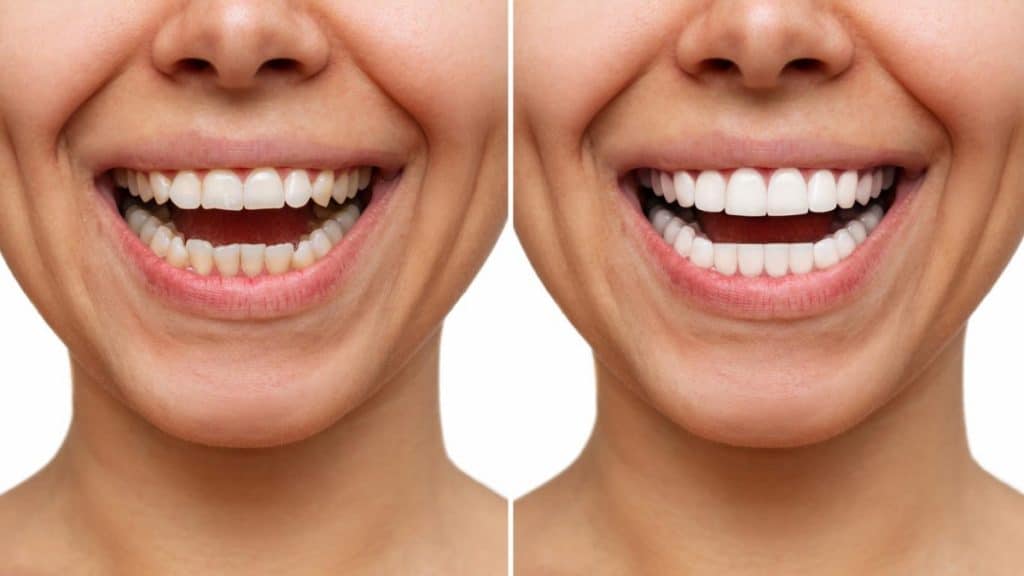Porcelain veneers are thin shells of dental porcelain that are custom-made to cover the front surface of teeth. They’re often used to improve the appearance of teeth that are discolored, chipped, misaligned, or have gaps. Here are some key points about porcelain veneers:
Benefits
- Aesthetic Improvement: They can enhance the color, shape, and alignment of teeth.
- Stain Resistance: Porcelain is resistant to staining, making them a good choice for maintaining a bright smile.
- Natural Appearance: They mimic the translucence of natural teeth, providing a lifelike look.
Procedure
- Consultation: Discuss your goals with a dentist and assess your oral health.
- Preparation: A small amount of enamel may be removed from the teeth to ensure a proper fit.
- Impressions: Molds of your teeth are taken to create custom veneers.
- Placement: After the veneers are fabricated, they are bonded to your teeth with a special adhesive.
Maintenance
- Oral Hygiene: Regular brushing and flossing are essential to maintain both the veneers and your natural teeth.
- Avoid Hard Foods: To prevent chipping, avoid biting into hard foods.
Longevity
With proper care, porcelain veneers can last 10 to 15 years or longer, but they may eventually need replacement.
How long porcelain do veneers last?
Porcelain veneers typically last between 10 to 15 years, although some can last even longer with proper care. Factors that influence their longevity include:
- Oral Hygiene: Good brushing and flossing habits help maintain both the veneers and the underlying teeth.
- Diet: Avoiding hard or sticky foods can prevent chipping or damage.
- Habits: Things like grinding your teeth (bruxism) or using your teeth as tools can shorten their lifespan.
- Regular Dental Check-ups: Routine visits to your dentist can help identify any issues early on.
What are the disadvantages of having veneers?
While porcelain veneers have many benefits, there are some disadvantages to consider:
- Cost: Veneers can be expensive, and they’re often not covered by insurance since they’re considered cosmetic.
- Irreversibility: The process usually involves removing some enamel from the teeth, which means the procedure is permanent. Once you’ve had veneers, you’ll need them or another restorative option for life.
- Potential Sensitivity: Some people experience increased tooth sensitivity after getting veneers, especially to hot and cold temperatures.
- Chipping or Cracking: While porcelain is durable, veneers can chip or crack if subjected to excessive force (like grinding teeth or biting hard objects).
- Color Matching: While they can improve the appearance of teeth, achieving the perfect color match to existing teeth can sometimes be challenging.
- Maintenance: Although they are stain-resistant, veneers can still accumulate plaque and may need to be replaced if they become discolored or damaged.
- Limited Lifespan: Although they can last many years, they do eventually need replacement, which can involve additional costs and procedures.
What is the dark side of veneers?
The “dark side” of veneers refers to some potential drawbacks and risks that may not be immediately apparent. Here are some of the more concerning aspects:
- Enamel Removal: The process typically requires removing a layer of enamel from the natural teeth, which is irreversible. This can make teeth more vulnerable to sensitivity and decay over time.
- Potential for Damage: While porcelain veneers are durable, they can chip or crack, especially if you have habits like teeth grinding or chewing on hard objects. Repairing or replacing damaged veneers can be costly.
- Discoloration of Natural Teeth: If your natural teeth darken over time while the veneers remain the same color, you may end up with a mismatch that requires additional cosmetic work.
- Sensitivity Issues: After getting veneers, some patients experience heightened tooth sensitivity, which can be uncomfortable.
- Cost and Maintenance: Veneers can be expensive, and they may require replacement after several years. The ongoing costs of maintaining them and your oral health can add up.
- Inadequate Results: Not all dental professionals have the same level of expertise, and poorly placed veneers can result in an unnatural appearance or issues with bite alignment.
- Psychological Impact: Some individuals may have unrealistic expectations about how veneers will change their appearance, which can lead to dissatisfaction if the results don’t meet those expectations.
- Dependency on Cosmetic Dentistry: Some people may feel pressure to keep up appearances with frequent replacements or additional cosmetic procedures, leading to a cycle of ongoing dental work.
Conclusion of Porcelain veneers
In conclusion, porcelain veneers can be an effective solution for enhancing the appearance of your smile, offering benefits like improved aesthetics, stain resistance, and a natural look. However, they also come with important considerations, such as the irreversible nature of enamel removal, potential sensitivity, and the costs associated with placement and maintenance.
Before deciding on veneers, it’s essential to weigh the pros and cons carefully, consult with a qualified dentist, and have realistic expectations about the results. With proper care, veneers can provide a beautiful, long-lasting smile, but understanding the associated risks will help ensure a satisfactory outcome.

